Politics
We Are Neither Thieves Nor Saboteurs, Mele Kyari Defend NNPCL
Published
9 months agoon
By
Ekwutos Blog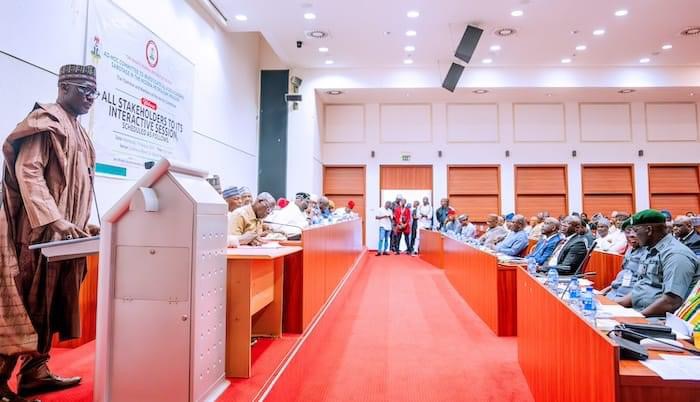
“We are not criminals. We are not thieves. But we will protect our dignity and honour,” says NNPC GCEO Kyari.
The Group Chief Executive Officer, NNPC, Mele Kyari, on Wednesday at the interactive session organised by the Senate Adhoc Committee probing sabotage in the oil and gas sector, chaired by the Senate Leader, Opeyemi Bamidele, declared that the leadership of the NNPC are neither thieves or economic saboteurs.
This was as stakeholders in the oil and gas sector of the Nigerian economy agreed to expose all forms of sabotage and criminal activities bedeviling the sector not minding whose ox is gored.
Participants at the Senate Adhoc Committee probing sabotage in the oil and gas sector, chaired by Bamidele, further agreed that the investigative public hearing should be aired live on national televisions and other media platforms.
Authorities of the Nigerian National Petroleum Company Limited (NNPC) and the Dangote Refinery and Petrochemical Company also seized the opportunity to clear the air on the recent face-off between the two establishments.
While the NNPCL management distanced the organisation from any form of sabotage and accusation of deliberately stalling the take-off of private refineries in the country, the Dangote firm denied allegation of attempt to monopolise the oil and gas sector in the country.
In his submission, the Group Chief Executive Officer, NNPC, Mele Kyari, stressed that the NNPC, “is loyal and faithful to the country,” adding that its management vowed to protect the interest of Nigeria in the petroleum industry.
He observed that most problems in the petroleum industry have nothing to do with NNPCL.
“We are faithful and loyal to the economic interest of this country. We are not criminals. We are not thieves. But we will protect our dignity and honour,” he added.
The NNPC boss said it was not possible to frustrate any private refinery because the Petroleum Industry Act had limited the roles of each regulator in the oil and gas sector.
He said, “The NNPC is a company owned by over 200 million Nigerians. And I happen to be the chief executive of this company. The law is clear around what the chief executive of this company will do.
“Our memorandum article of association, the Petroleum Industry Act, and all other enabling, including the Company and Allied Matters Act, (CAMA), which was legislated by this Honourable National Assembly had listed our roles.
“I will wait for the public hearing to reveal certain things. I also agree with the Minister that it should be broadcast live so that Nigerians will hear us. So that all the misinformation that you see today will be put to the side, so that Nigerians will know the truth.
“All of us here see what is happening in the media. Targeted personal attack on my person, on the institution, and we all know how this works. They are deliberate, they are calculated.
“It creates the impression that NNPC Limited and our leadership are doing something to create economic sabotage in our country. It is far from it.
“I assure you, Mr. Chairman, that the NNPC Limited and its board of directors and its shareholders are faithful, loyal to this country.”
Kyari added: “We do not lie to this country. And we do nothing to sabotage the economic interests of this country. As a matter of fact, NNPC is the economic interest of this country.”
In its response, Dangote Refinery, through its Group Strategy Officer, Aliyu Suleiman, said the firm had so far, bought about 50 million barrels of crude.
Sulaiman said, “About 60 per cent of that came from the NNPC, and we are thankful to them for their support. And we’re grateful to them for their support.
“About 20 per cent of that (crude) had to be imported from outside and the other 20 per cent we purchased.
“Essentially, all we are asking for, and let’s be very clear, we are happy to pay fair prices.
“We are very happy with the price that they set, the price is like supermarkets and that’s what we buy. But what we buy from others is what we think the regulator should look at and the good thing the regulator has done, is that it has published a guideline that will address some of these.
“We hope that we’ll work with the regulator and we’ll get their support so that the refinery can get 100 per cent of its crude from Nigeria and buy the crude from companies that produce it in Nigeria not from international middlemen.
“Whatever the prices, as long as it is in Nigeria, and that’s the price also that the producer will pay their tax on, we’ll be happy to pay that.
“Since the refinery started full trial production in January and then full time production started in March, since then we have processed about 50 million barrels
“We’ve produced about five million tons of petroleum products. And these petroleum products have been sold to various parts of the country.
“Jet fuel has been sold in Europe since May. It’s been sent to Europe. Other products have been sent to places as far as Asia, US, Brazil, and so on. So the refinery has been making a lot of progress.
“We have produced five million tons of products, but about 90 per cent of it had to be exported. While at the same time, the products we were producing had been imported into Nigeria.
“We find ourselves competing against Russian products that have been produced with oil that is valued at $60. “We all know that because of the cap that has been put on, put on Russian oil, the value of Russian oil today in the market is $60.
“That’s what Russia is using to produce their products and those products are being sent in large quantities into Africa to compete with products that are produced in refineries that buy crude at $90.
“We don’t think this will be a fair competitive environment. It is normal to put protective measures. The US, for example, has done that, to protect their own industries against attack by China that subsidise their own industries and then sends them to the US.”
Meanwhile, the Senate panel on the occasion raised questions over the $1.5 billion approved in 2021, for the turn-around maintenance of the Port Harcourt Refinery with little or no result.
Consequently, the upper chamber lamented that it was unfair and wrong to treat government businesses or public companies as an orphan while private businesses were flourishing and thriving.
Bamidele, who is the Leader of the Senate and Chairman, of the ad hoc panel investigating the Alleged Economic Sabotage in the Nigerian Petroleum Industry said the Federal Executive Council had approved the plan by the Ministry of Petroleum Resources to rehabilitate and turn around the Port Harcourt Refinery with a whopping sum of $1.5 billion under the administration of former President Muhammadu Buhari.
He noted that despite the huge investment, the government-owned refinery was yet to function effectively, a situation that compelled the country to depend almost entirely on the importation of petroleum products.
Bamidele, expressed grave concerns about the dysfunctionality of the government-owned refineries despite billions of dollars invested to carry out turn-around maintenance on the installation.
He observed that the federation, “is undergoing a truly challenging period,” pointing out that the distribution and supply of refined petroleum products, “has been irregular and problematic in the recent history of our fatherland.”
“In 2021, specifically, the Federal Executive Council approved $1.5 billion for the turn-around maintenance of the Port Harcourt Refinery. Yet, this investment has not yielded significant returns.
“For us, in the Senate, we believe, it is unfair and unpatriotic to treat government businesses or public corporations as an orphan while private businesses are flourishing and thriving,” Bamidele pointed out at the interactive session.
The session was attended by Minister of Finance and Coordinating Minister of the Economy, Mr. Wale Edun; Minister of State (Petroleum), Senator Heineken Lokpobiri; and Kyari. Others included the Chief Executive Officer, Nigerian Upstream Petroleum Regulatory Commission (NUPRC), Mr. Gbenga Komolafe; the Chief Executive Officer, Nigerian Midstream and Downstream Petroleum Regulatory Authority, Mr. Farouk Ahmed, major and independent oil marketers, among others
In his own remarks, Edun said the increase in the crude volume would stabilise the country’s foreign exchange market while expressing confidence in the leadership of the ad-hoc committee to conduct an unbiased and impartial investigation.
Meanwhile, the Minister of State for Petroleum Resources, Senator Heineken Lokpobiri, has pledged the full cooperation of the ministry with the senate which is investigating the sector.
“ In view of the fact that the quickest means to overcome our economic challenges lies within the petroleum sector, there is a need to keep Nigerians in the know of procedures and processes being carried out in our effort to transform and reposition our oil sector, bearing in mind the need to protect and promote our local players in the industry.
“I emphasised on this during my appearance before the Senate Adhoc Committee investigating alleged economic sabotage in the Nigerian petroleum industry, where I expressed my commitment to cooperating with the committee to put to rest some of the misinformation making rounds.
“The federal government, under President Bola Tinubu, remains committed to fostering the necessary synergy and partnerships to achieve our goals, and we are expediting efforts to complete rehabilitation works on our three refineries to ensure we meet our domestic petroleum needs efficiently,” Lokpobiri said on his X handle.
The National President of Independent Petroleum Marketers Association of Nigeria (IPMAN), Alhaji Abubakar Shettima in his presentation admonished the committee against monopoly in the petroleum sector.
“The current value chain in the downstream should be sustained to allow other investors to participate.
“NNPCL is doing its best but should please improve on supply of products to retail outlets across the country to end the incessant queue at filling stations,” he said
Follow trueTALKnija for more exclusive updates
You may like


JUST-IN: President Tinubu Allegedly Had a Secret Meeting With Rivers State Governor, Sim Fubara and The 27 Pro-Wike Assembly Members in London
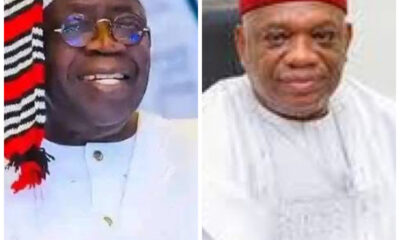

PRESIDENT TINUBU CELEBRATES SENATOR ORJI UZOR KALU AT 65
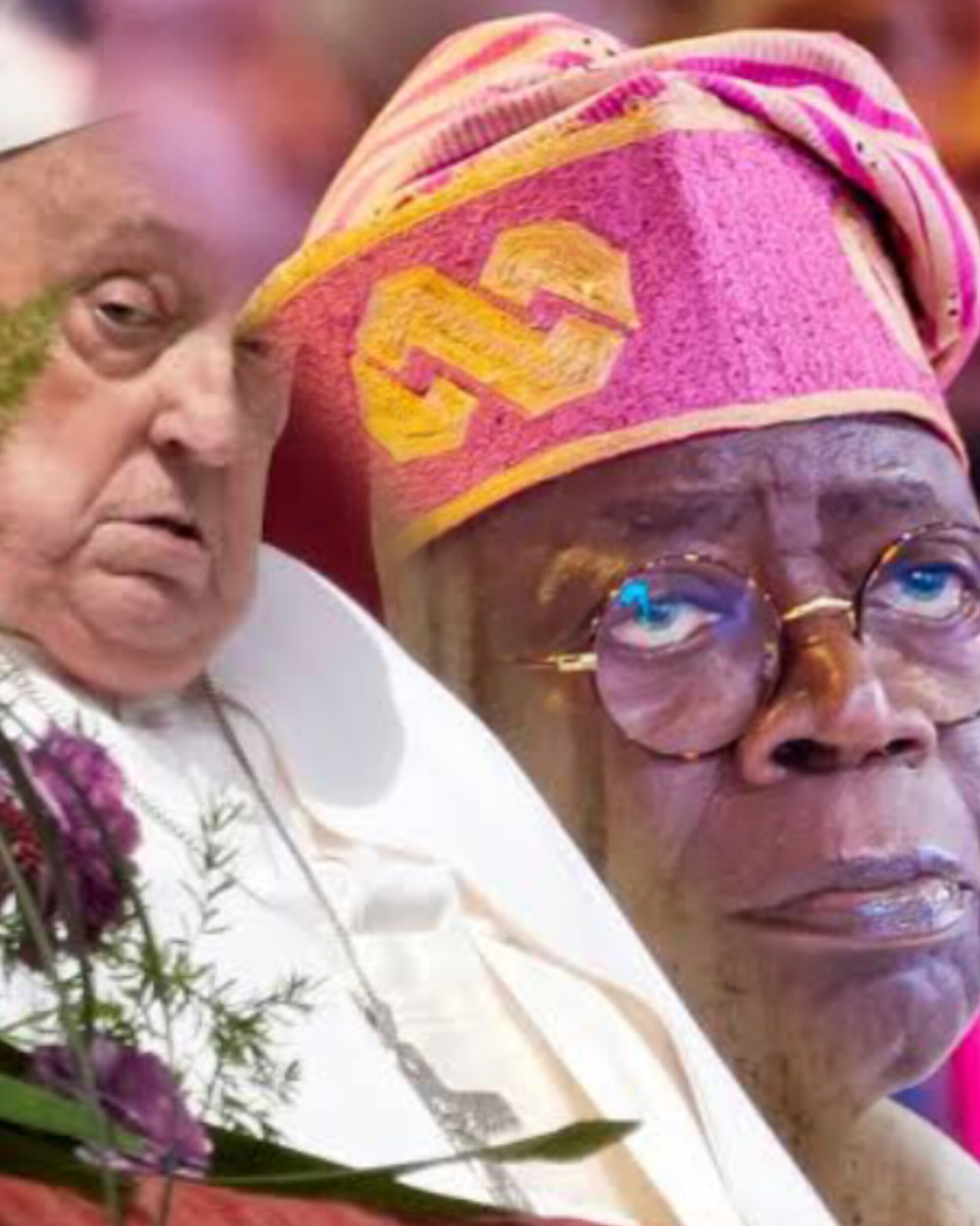

PRESIDENT TINUBU’S STATEMENT ON THE PASSING OF HIS HOLINESS POPE FRANCIS
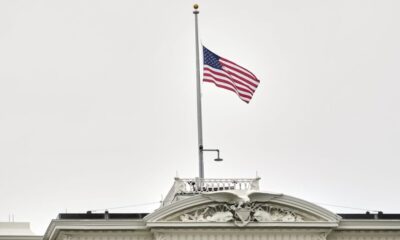

Trump orders American flags flown at half-mast to honour Pope Francis
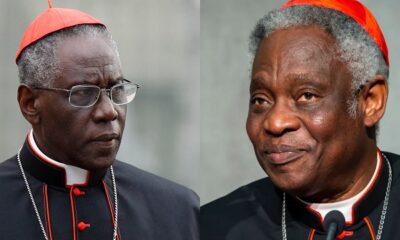

Meet African Cardinals who could be the next Pope
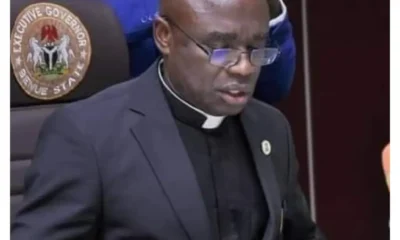

Benue was bleeding, now it’s healing – Governor Alia
Politics
JUST-IN: President Tinubu Allegedly Had a Secret Meeting With Rivers State Governor, Sim Fubara and The 27 Pro-Wike Assembly Members in London
Published
9 minutes agoon
April 21, 2025By
Ekwutos Blog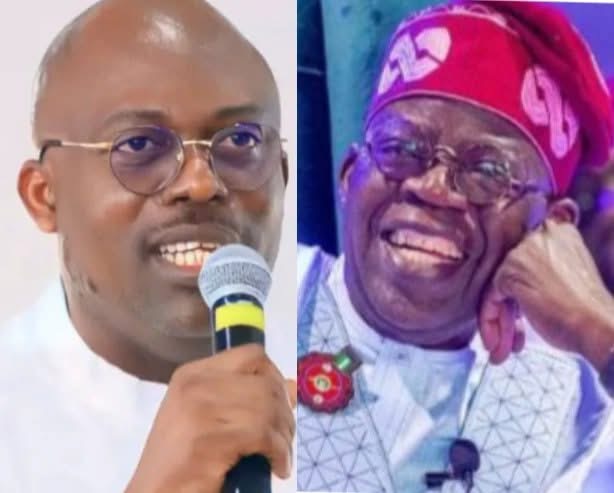
A source familiar with the political situation in Rivers State has revealed a secret meeting between President Tinubu, Governor Sim Fubara and the embattled 27 Pro-Wike Assembly members in United Kingdom. The source who played anonymity claimed that the reason President Tinubu stayed long away from Nigeria after embarking on a brief holiday was to ensure a conclusive agreement between Gov. Fubara and the 27 Pro-Wike Assembly members.
The source also claimed that the FCT minister, Chief Barr. Nyesom Wike May not be unaware of the ‘foreign meeting amidst the political tension in Rivers State.
According to the source, Governor Fubara is being reined upon to join the ruling All Progressive Congress (APC) to support President Tinubu and save his political career.
It’s worthy to note that President Tinubu, Gov. Sim Fubara and the 27 Pro-Wike Assembly members were all on holiday in London. President Tinubu has just returned to Nigeria after spending 19 days in Europe.
Politics
PRESIDENT TINUBU CELEBRATES SENATOR ORJI UZOR KALU AT 65
Published
33 minutes agoon
April 21, 2025By
Ekwutos Blog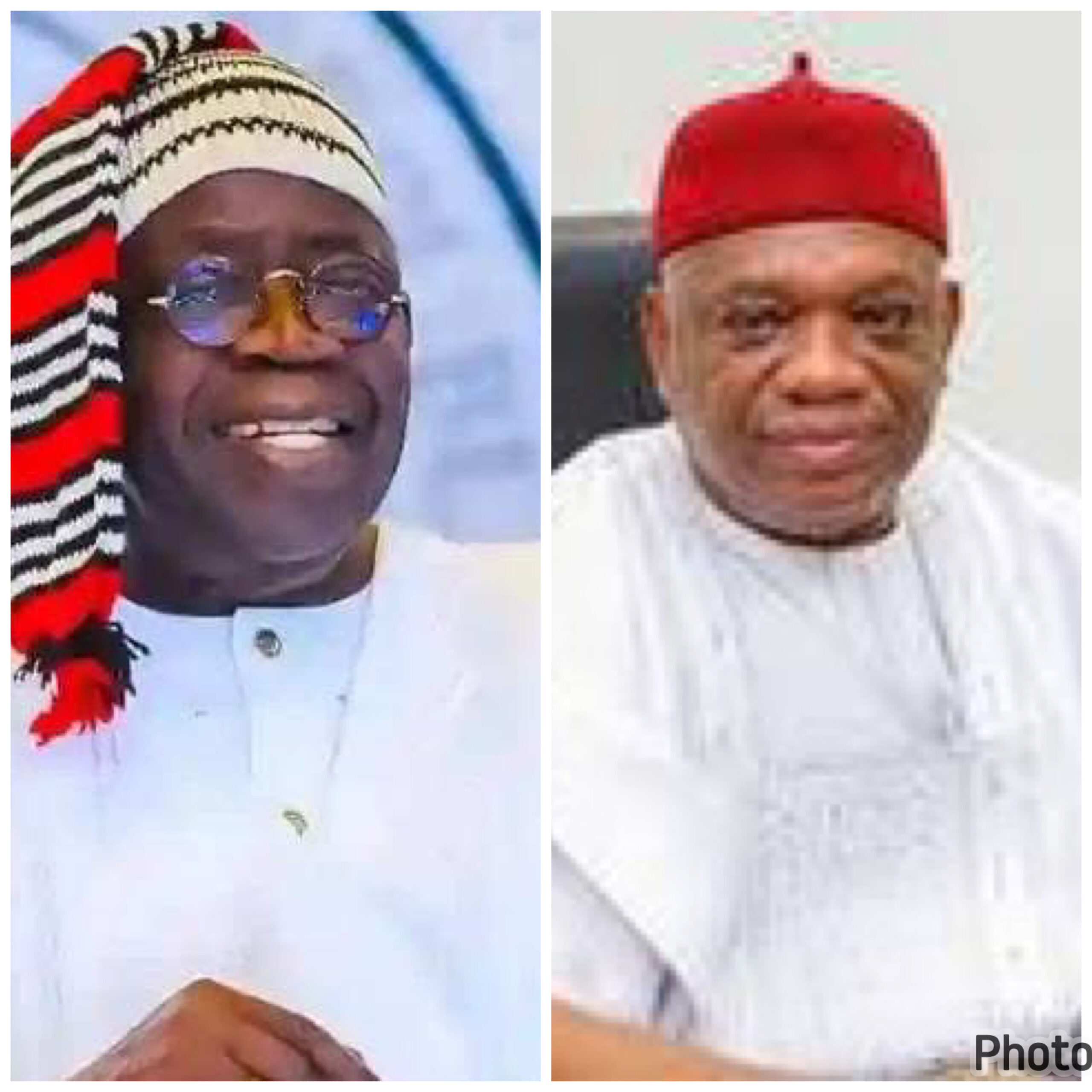
STATEHOUSE PRESS RELEASE
PRESIDENT TINUBU CELEBRATES SENATOR ORJI UZOR KALU AT 65
President Bola Tinubu congratulates Dr Orji Uzor Kalu, former Governor of Abia State and Senator representing Abia North Senatorial District, on his 65th birthday.
President Tinubu reflects on their enduring friendship and shared commitment to national progress, rooted in their membership of the “Class of ’99” Governors.
The President extols the former Majority Whip’s unwavering patriotism, recalling decades of collaboration marked by mutual respect, even with political differences.
He lauds Senator Kalu’s entrepreneurial spirit, as epitomised in his establishment of Slok Holding and investments in banking and the media, ventures that have created hundreds of jobs.
“Senator Kalu, my friend, is a patriot whose life embodies resilience, generosity, and the transformative power of visionary leadership. On this milestone, I celebrate his contributions to our nation’s economic and political tapestry,” President Tinubu says.
The President prays that God Almighty will grant Senator Kalu renewed strength, wisdom, and many more years of impactful service to Nigeria and humanity.
Bayo Onanuga
Special Adviser tot the President
(Information and Strategy)
April 21, 2025
Politics
Benue was bleeding, now it’s healing – Governor Alia
Published
6 hours agoon
April 21, 2025By
Ekwutos Blog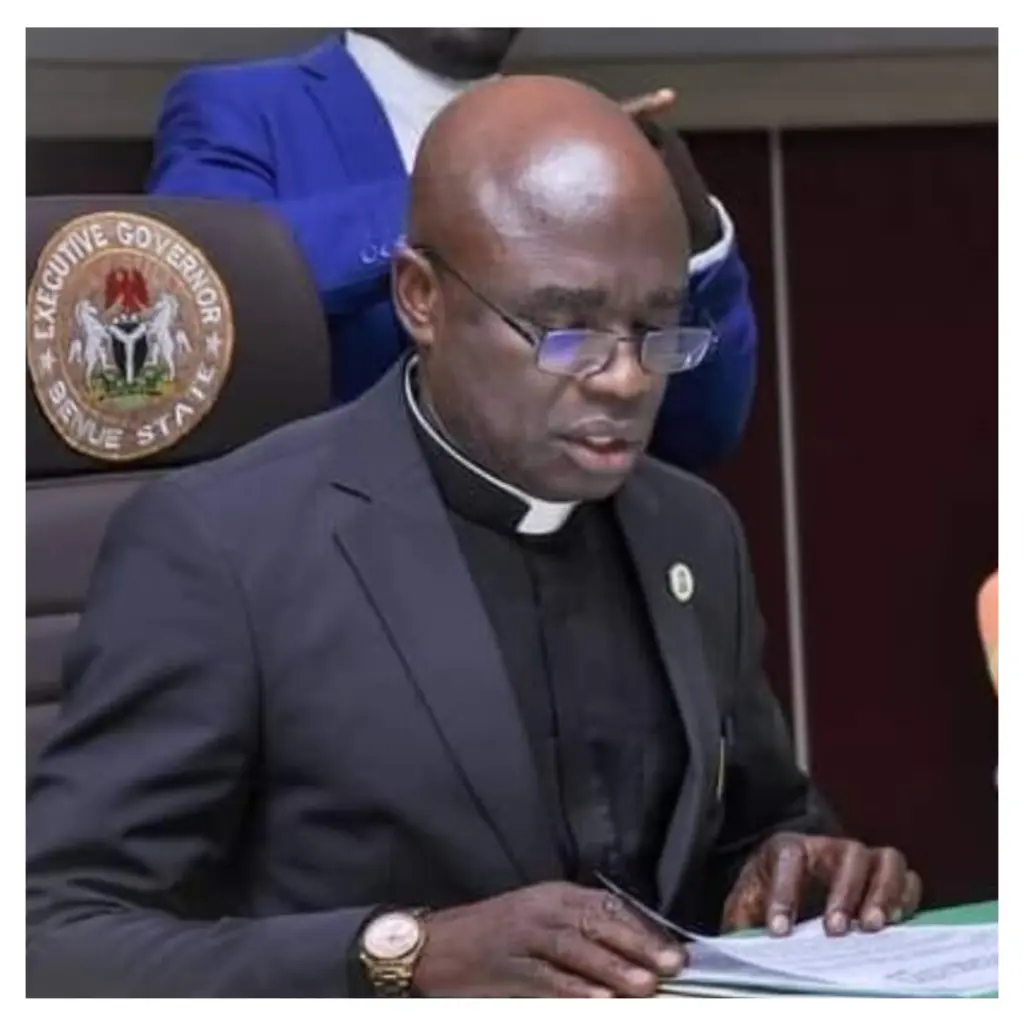
Benue State Governor, Hyacinth Alia, has declared that the state, once overwhelmed by insecurity and mismanagement, is now on a path to healing under his leadership.
Speaking in an exclusive interview with Vanguard, Alia reflected on his transition from Catholic priesthood to politics, his administration’s efforts in tackling insecurity, and his unique approach to fiscal discipline.
As he marks 35 years in the priesthood this July, Alia revealed that his decision to enter politics stemmed from a deep understanding of the challenges facing Benue.
“I’ve spent my life serving the people of Benue in the suburbs, understanding their struggles. It wasn’t difficult for me to transition because I was already working to fix problems as a priest,” he said.
Alia said his transition into politics was driven by an urgent desire to bring change. “As a priest, you spend your time supporting people, solving environmental and family problems. Politics was just an extension of that, although with the added responsibility of navigating a complex political environment,” he added.
On the issue of insecurity, the governor delved into the historical context, explaining that Benue’s security challenges are linked to broader regional dynamics. He noted that Benue, like other parts of Nigeria, is facing a deepening crisis caused by the ECOWAS transhumance protocol, which allowed for cross-border grazing.
“When we were growing up, there were no issues with herders. But after the ECOWAS protocol was adopted, things drastically changed,” he explained.
Alia disclosed that as of June 2024, about 500,000 people from 17 of the state’s 23 local governments were displaced due to violence.
“Our people are primarily farmers, but we’ve seen the land grab that accompanies these attacks. This is no longer pastoralism – it is a calculated destabilization,” he said.
He also emphasized that despite the challenges, his government is working to tackle displacement through a three-pronged solution: temporary shelter, integration, and relocation back to ancestral lands.
Alia urged the Federal Government to reconsider Nigeria’s participation in the ECOWAS protocol, calling for a review of the policy that has contributed to insecurity. “If the Federal Government revisits this protocol, it could make a huge difference. We need to fix our internal security first,” he said.
In addressing the state’s finances, Governor Alia revealed his commitment to fiscal transparency, pointing to the consistent payment of salaries on the 25th of each month.
“Before I came in, civil servants and pensioners went without their pay. I inherited N359 billion in debt, but we found a way to make sure workers get their pay on time,” he said, adding that he had implemented a new standard where salaries are paid even on public holidays or weekends.
Despite facing criticism from some quarters, particularly among the political elite, Alia stood firm in his belief that timely salary payments were a necessary reform. “People used to take the fish without learning to fish. Now, they’re learning to be self-reliant, and it’s creating some enemies,” he said.
The governor also reflected on his relationships with the judiciary and his political party, stressing that his administration is committed to transparency and the rule of law. “There have been no issues with the judiciary. We followed due process with the NJC, and any disputes were addressed professionally,” Alia explained.
As he looks towards the future, the governor expressed confidence that his administration’s approach to governance will continue to transform Benue. “It’s about proper planning, strategy, and execution. We’ve brought a new thinking to Benue, and the people are beginning to see the difference,” he concluded.

JUST-IN: President Tinubu Allegedly Had a Secret Meeting With Rivers State Governor, Sim Fubara and The 27 Pro-Wike Assembly Members in London

PRESIDENT TINUBU CELEBRATES SENATOR ORJI UZOR KALU AT 65

PRESIDENT TINUBU’S STATEMENT ON THE PASSING OF HIS HOLINESS POPE FRANCIS
Trending

 Trending6 months ago
Trending6 months agoNYA demands release of ‘abducted’ Imo chairman, preaches good governance
- Business6 months ago
US court acquits Air Peace boss, slams Mayfield $4000 fine

 Politics6 months ago
Politics6 months agoMexico’s new president causes concern just weeks before the US elections
- Entertainment6 months ago
Bobrisky transferred from Immigration to FCID, spends night behind bars
- Entertainment6 months ago
Bobrisky falls ill in police custody, rushed to hospital

 Politics6 months ago
Politics6 months agoRussia bans imports of agro-products from Kazakhstan after refusal to join BRICS

 Politics6 months ago
Politics6 months agoPutin invites 20 world leaders
- Politics1 year ago
Nigerian Senate passes Bill seeking the establishment of the South East Development Commission.

